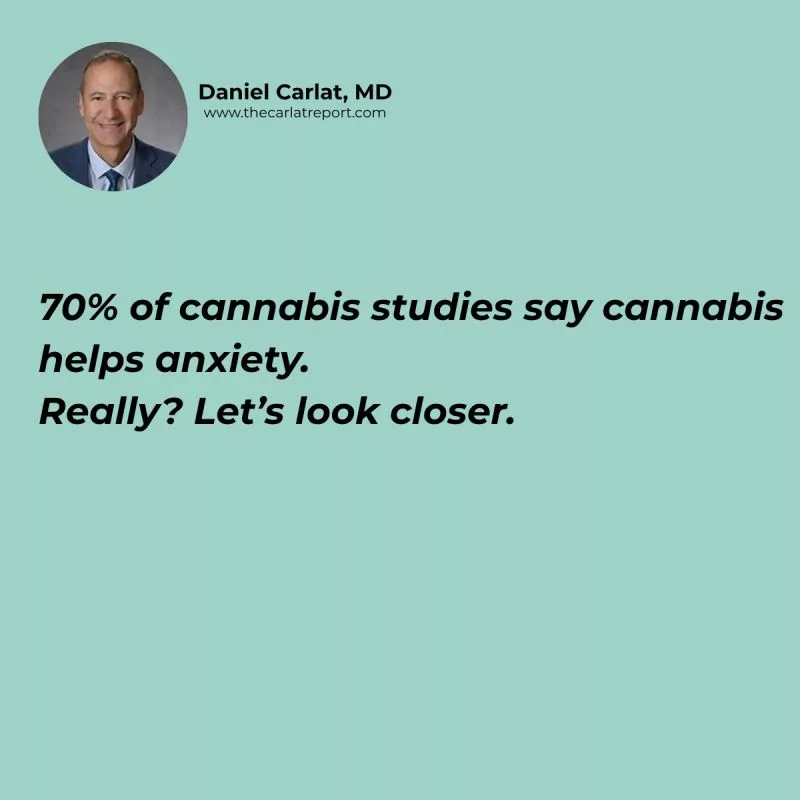It’s festival season again.
Your patients are probably using more cannabis, because it's the thing to do at a reggae concert. And then comes the question:
“Doc, is it okay if I use weed for my anxiety?”
Some patients have heard a stat that “70% of studies show cannabis helps anxiety.”
Behind that number is a systematic review by Roberts et al. in Psychiatry Research (2025), citing 13 "high-quality" studies—9 of which reported “positive improvement.”
But what exactly counts as “positive”?
And do these studies actually test cannabis as a treatment for anxiety?
With help from Open Evidence and Claude, I dug into those nine “positive” studies.
Here’s what I found:
→ Study 1: Measured anxiety as a side note in a chronic pain registry
→ Study 2: CBD failed its primary endpoint—but still got counted as “positive”
→ Study 3: One-time THC dose with brain imaging—not a treatment trial
→ Study 4: Pandemic stress in healthcare workers—not generalizable anxiety
→ Study 5: Self-reported anxiety, no dosing info, no control group
→ Study 6: Military PTSD nightmare study—9 completers, narrow focus
→ Study 7: Social anxiety + exposure therapy—failed primary, counted anyway
→ Study 8: Japanese teens with social anxiety—short, specific
→ Study 9: Open cannabis use with no standardization—basically observational
Only 1–2 of the “positive” studies actually tested cannabis as an anxiety treatment—with proper controls, clinical diagnoses, and meaningful outcomes.
How do we talk to our patients about questions like this—when the public conversation feels so confident, and the data is so… squishy?
Most people—patients or not—don’t understand research design.
And honestly, sometimes I’m still figuring it out myself.
But I do know wishful thinking when I see it.We want simple answers for complex problems.
Headlines promise relief. Abstracts sound definitive.
But the details tell a different story.
How do you approach patients who ask about cannabis for anxiety?
Maybe more importantly, how are we supposed to navigate the cannabis research in an intelligent, informed way?
Join the conversation on LinkedIn with Dr. Carlat.


_-The-Breakthrough-Antipsychotic-That-Could-Change-Everything.webp?t=1729528747)



